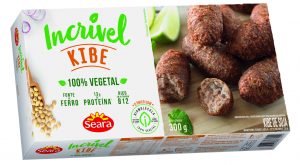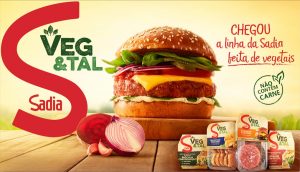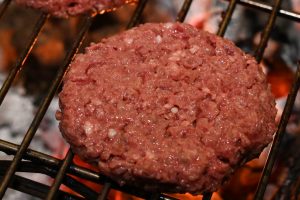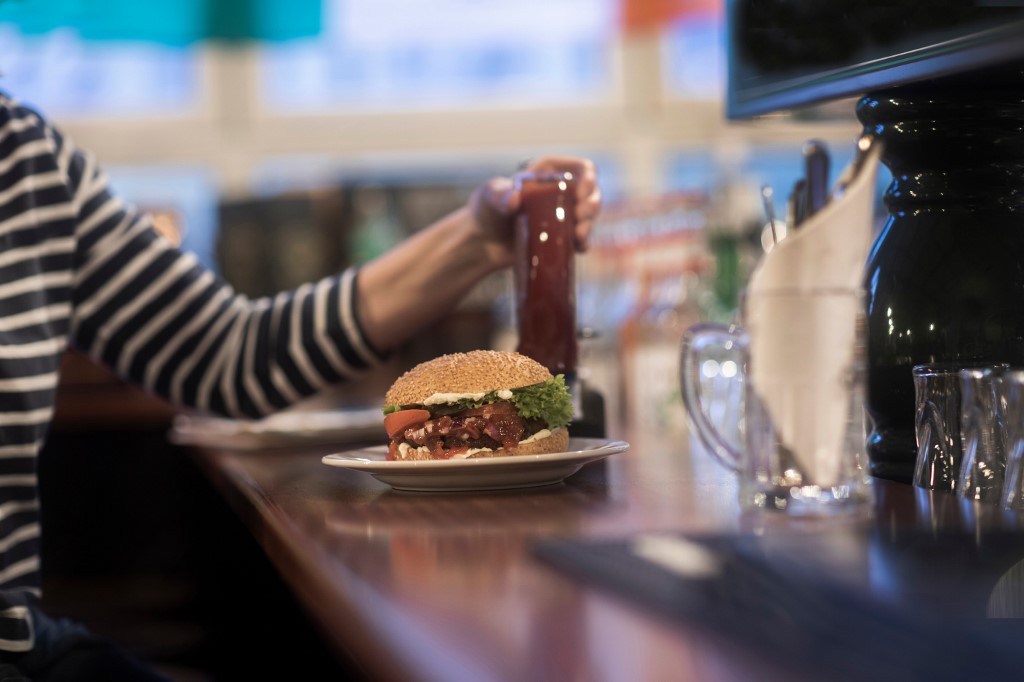São Paulo – In recent years, more and more people are joining the ranks of veganism, vegetarianism and flexible diets. Many companies, including Brazil’s meat industry majors, are putting out products targeting that niche. A study from Euromonitor shows that meat substitutes are a USD 19.5 billion market around the world, and the majority of buyers – whose number is seen climbing 6.8% to 9.4% through 2025 – are so-called flexitarians, who diversify their diets with non-animal products even though they aren’t vegan or vegetarian.
In Brazil, 14% of the population are self-declared vegetarians, according to an Ibope Inteligência poll from April 2018. That’s about 30 million people. Now, mammoth animal protein suppliers Seara (JBS), Sadia (BRF) and Marfrig have joined the race for this market by launching plant-based products.
Seara
JBS unveiled its Incrível Seara line in Brazil last December. February saw it introduce the items to global markets at Gulfood, the industry show in Dubai, UAE. This 100% plant-based line is made from pea and soy protein, enriched with iron and B12 vitamin. It’s trans fat-, lactose-, egg- and milk-free.
The groundbreaking aspect in the Incrível product line is “Biomolecule I,” which the company argues provides flavor and textureon par with animal-based products. Seven products are available in Brazil: beef- and chicken-flavored burgers, a breaded chicken nugget-like product, beef-flavored kibbeh, Eastern “beef,” and the latest outings – escondidinho and sausage.
“These products will come as a surprise to those looking for alternatives to animal protein who don’t want to give up on flavor, whether they are flexitarian, vegetarian or just plain curious. The line is 100% plant-based and transgenic-free (another unique feature),” according to promotional material.
The Incrível Seara product line is designed to cement the company’s foothold in the plant-based protein market by catering to multiple demographics. “Customers and buyers across the country have an unprecedented, completely plant-based line available to them,” Seara Alimentos executive director for Marketing and Trade Marketing José Cirilo was quoted as saying. These days, there’s a solution for everything, and that includes food. It’s a new way to achieve amazing flavors,” he said.

Sausages come in three 15-gram units per pack. The Escondidinho is 350 grams and 13.2 grams of protein per pack. Burgers are made from peas and come in four-unit, 452-gram with 18 grams of protein per unit. Nuggets come in 300-gram packs with 12 grams of protein apiece. Kibbeh comes in six-unit packs at 13 grams of protein apiece.
Incrível Seara line products are made in Brazil and are available from supermarkets across the country. It’s also found in restaurant chains, outlets at stadiums, and major retail chains including Allianz Parque, Applebee’s, Rodeio, Detroit’s Steakhouse, Habib’s, and Subway.
The new line is already shipping to some countries in Africa and the Middle East. .
JBS was the first major food company in Brazil to come up with a comprehensive line of vegetarian products. At Gulfood, it was the only Brazilian company to make it to the Gulfood Innovation Awards finals, with two Incrível line products – the burger and the kibbeh.
Sadia
On March 6, BRF launched its new Sadia Veg&Tal line of frozen products, featuring plant-based burger, bacon and nuggets, plus whole yoghurt-dough pie in two new flavors: spinach with ricotta cheese, and broccoli with requeijão cream cheese. The latter two are vegetarian items, since they contain eggs and milk. So far, the products are available only in São Paulo, with a countrywide rollout expected throughout the year.
Available in 200-gram packs, the nuggets are made from corn flakes, soy protein, sunflower oil, salt, onion, potato fiber, cumin seeds, spices and herbs.
The burgers contain coconut oil, soy protein, sunflower oil, onion, beets, potato fiber, herbs and spices, salt, garlic and tomato. They come in two-unit packs.

The vegetarian yoghurt-dough pie is 500 grams, containing yoghurt, egg, palmetto, tomato, parmesan, requeijão, onion, olives, margarine, salt, parsley, black pepper, broccoli and spinach. Plant-based protein is the basis for the nuggets, burgers and pie products.
“We want to provide increasingly flavorful and practical, high-quality products through innovation. Our inroads into the plant-based protein market underscores this emphasis on innovation, and it is expected to bring in 10% of revenue by 2023,” BRF brands marketing director Marcelo Suarez was quoted in a press release as saying.
Through its new plant-based line, the company is looking to universalize alternatives in Brazil with safe, quality products. BRF market vice president Brazil Sidney Manzaro said the company “is looking to build rapport with people who are seeking alternatives to meat in order to diversify their diets. We have been thorough in our development and testing, in line with Sadia’s standards and quality levels,” he said according to promotional material.
In developing its plant-based line, Sadia did research into 14 different technologies and applications from around the world before settling on one that appeals to the tastes of Brazilian people. Manufacturing involves an innovative protein isolation and texturization process to create a meatless product with balanced ingredients and natural seasonings.
The company’s plant-based items are being manufactured by a partner company in Europe, except for the veggie pies, which come from the BRF plant in Ponta Grossa, Paraná.
Sadia Veg&Tal frozen burgers, nuggets and pies are available from points of sale. Veggie bacon will be made available in May.
Marfrig
Marfrig put out its veggie burger in August 2019, after three years of studies on manufacturing technology and the plant-based market. The company partnered up with the United States’ Archer Daniels Midland Company (ADM) – which processes farm products and supplies food ingredients – to make and sell plant-based products in Brazil. ADM provides the main raw material, while Marfrig handles manufacturing, distribution and sales to food service businesses and retailers.
“We offer solutions through a sustainable supply chain, and we’ll keep forging ahead with agility, since we have always been pioneers in meeting the newest demands from clients and buyers with excellence,” ADM Nutrition Latin America chair Roberto Ciciliano said in promotional material.

In September, Marfrig unleashed its Rebel Whopper veggie burger in a partnership with Burger King.
Last December saw Marfrig Global Foods launch its own veggie burger brand – Revolution Burger. Revolution items are made at Marfrig’s Várzea Grande, Mato Grosso plant, as well as all of the company’s other veggie burgers.
In January, Outback Steakhouse started offering the burgers. The Revolution burgers available from these restaurants are more artisanal.
For the time being, the burgers are only available from those two restaurant chains. By the end of the first half, the company plans on placing the products on Brazilian retailers and starting to ship to China. The burgers are soy-based. Marfrig is also looking into putting out other plant-based products this year.
“The Revolution plant-based product line is yet another addition in Marfrig’s strategy to expand its portfolio of innovative, high value-added products, and to offer buyers options that match their shopping styles, tastes, and convenience. We’re expanding our portfolio in a consistent way, and the launch of a proprietary brand that reflects the product quality and the company’s relationship with its client chain is a crucial step we are taking,” reads a press release.
On March 2, the company said its veggie burger will also be available from the 20 Burger King outlets in Uruguay. “The expansion of this partnership attests to the quality of our burgers,” Marfrig South America Operations CEO Miguel Gularte was quoted as saying.
Translated by Gabriel Pomerancblum




